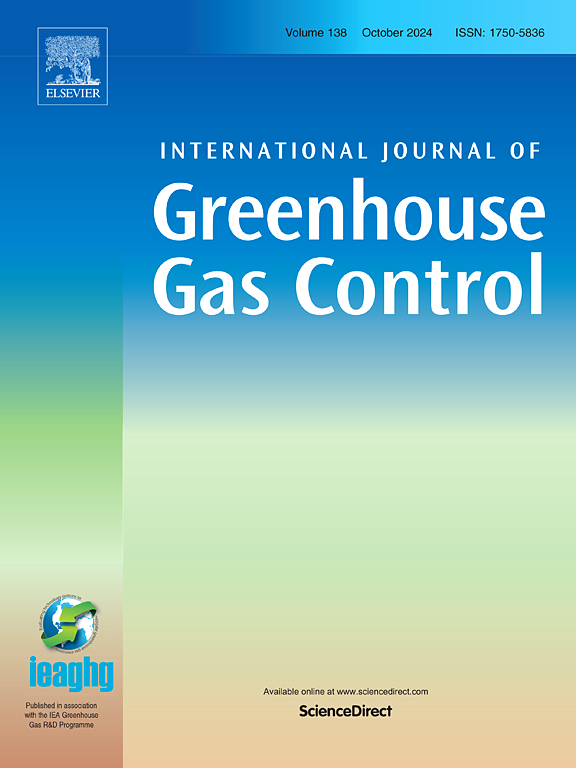利用具有滞后西格玛等温线的柔性金属有机框架优化真空变压吸附的替代模型
IF 4.6
3区 工程技术
Q2 ENERGY & FUELS
International Journal of Greenhouse Gas Control
Pub Date : 2024-10-01
DOI:10.1016/j.ijggc.2024.104260
引用次数: 0
摘要
本研究针对使用柔性金属有机框架(MOF)的真空变压吸附(VPSA)工艺进行了工艺优化研究。许多柔性 MOF 表现出具有滞后性的西格玛吸附等温线,这给使用严格的工艺模型进行模拟和优化带来了挑战。在本研究中,我们采用了代用模型优化方法,通过对拉丁超立方采样生成的 903 种操作条件进行模拟,利用机器学习算法构建代用模型。考虑到吸附压力、解吸压力、吸附时间和解吸时间这四个设计变量,从 18 种不同的代用方案中确定了性能最佳的代用模型。利用最佳代用模型,我们解决了一个多目标优化问题,以确定回收率、能耗和床层尺寸系数之间的帕累托前沿。我们的分析确定了使用柔性 MOF 的 VPSA 的一个显著特点,即纯度和回收率几乎不受进料量的影响。本文章由计算机程序翻译,如有差异,请以英文原文为准。
Surrogate model optimization of vacuum pressure swing adsorption using a flexible metal organic framework with hysteretic sigmoidal isotherms
This study presents a process optimization study for a vacuum pressure swing adsorption (VPSA) process using a flexible metal-organic framework (MOF), which is gaining attention as a material to realize energy-efficient carbon dioxide capture processes. Many flexible MOFs exhibit sigmoidal adsorption isotherms with hysteresis, posing a challenge for simulation and optimization using a rigorous process model. In this study, we employ surrogate model optimization, where surrogate models using machine-learning algorithms were constructed from simulation of 903 operating conditions generated by Latin hypercube sampling. The surrogate models with the best performance were identified from 18 different surrogate options considering four design variables—adsorption pressure, desorption pressure, adsorption time, and desorption time. Using the best surrogate models, a multi-objective optimization problem was solved to identify the Pareto front among recovery, energy consumption, and bed size factor. Our analysis identified a distinct characteristic of VPSA using a flexible-MOF where purity and recovery are hardly affected by the feed volume.
求助全文
通过发布文献求助,成功后即可免费获取论文全文。
去求助
来源期刊
CiteScore
9.20
自引率
10.30%
发文量
199
审稿时长
4.8 months
期刊介绍:
The International Journal of Greenhouse Gas Control is a peer reviewed journal focusing on scientific and engineering developments in greenhouse gas control through capture and storage at large stationary emitters in the power sector and in other major resource, manufacturing and production industries. The Journal covers all greenhouse gas emissions within the power and industrial sectors, and comprises both technical and non-technical related literature in one volume. Original research, review and comments papers are included.

 求助内容:
求助内容: 应助结果提醒方式:
应助结果提醒方式:


